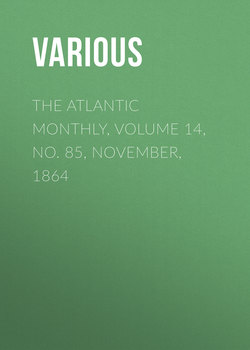Читать книгу The Atlantic Monthly, Volume 14, No. 85, November, 1864 - Various - Страница 5
CHARLES LAMB'S UNCOLLECTED WRITINGS
ОглавлениеFOURTH PAPER
Lamb's time, after his manumission from India-House, seems to have hung rather heavily upon his hands. Though the "birds of the air" were not so free as he was then, I fear they were a great deal happier and vastly more contented than our liberated and idle old clerk. Though in the first flush and excitement of his freedom from his six-and-thirty years' confinement in a counting-house,—(he entered the office a dark-haired, bright-eyed, light-hearted boy; he left it a decrepit, silver-haired, rather melancholy, somewhat disappointed man, whose spirits, as he himself confesseth, had grown gray before his hair,)—though, when in the dizzy and happy early hours of his freedom, Elia exultingly wrote (and felt) that "a man can never have too much time to himself," the honeymoon (if I may so express it) of his emancipation from the
"Dry drudgery at the desk's dead wood"
was not fairly over before he felt that man's true element is labor,—that occupation, which in his younger days he had called a "fiend," was in very truth an angel,—the angel of contentment and joy. Doctor Johnson stoutly maintained by both tongue and pen, that, in general, no one could be virtuous or happy who was not completely employed. Not only the bread we eat, but the true pleasures and real enjoyments of life, must be earned by the sweat of the brow. The poor old mill-horse, turned loose in the pasture on Sundays, seems sadly to miss his accustomed daily round of weary labor; the retired tallow-chandler, whose story has pointed so many morals and adorned so many tales, would have died of inertia and ennui in less than six months after his retirement from business, had not his successor kindly allowed him to help on melting-days; and methinks the very ghosts of certain busy and energetic men must fret and fume at the idle and inactive state of their shadowy and incorporal selves; nor, unless—as some hope and believe—we are to have our familiar and customary tasks and duties to perform in heaven, could their souls be happy and contented in Paradise.
